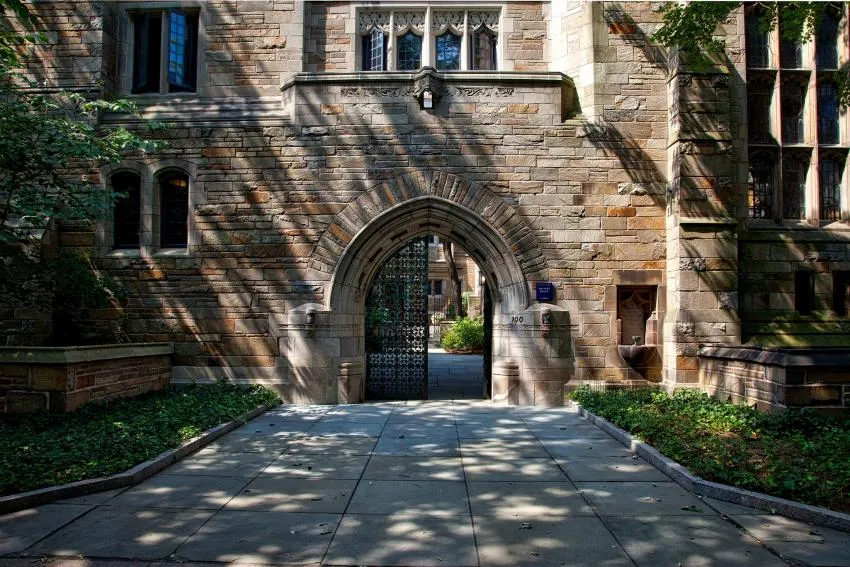Avoid These Regrets Of College Students Past
College is the final stepping stone in many people’s education before they set off for the working world. In college, they’re expected to study their field, learn how it functions, and what part they’re going to play in their careers. However, life isn’t about the destination: it’s the journey. Many college students enter college only thinking about the future without realizing that they’ll miss everything that is in the present.
So, what are some college-grad regrets?

1. Learn how to study effectively
It’s a common regret among college students that upon their first year of college, they realize they don’t know how to study. It’s not that they couldn’t study, they just didn’t know how to effectively absorb the information in their notes from their readings and lectures. This is because for many students, some glide through high school without having to study for their exams or their quizzes because they’re naturally bright.
However, talent won’t save their grades in college. This is where students who have always needed to study for their high school classes have a serious advantage: they’ve already developed a system that works for them, so their college courses won’t be as humbling for them as it is for those who barely picked up a book in high school. Start hitting the books and attend review sessions and tutoring.

2. If you don’t know what you want, don’t rush
While many students have a career in mind from the time they’re children, many high school grads come to university without a single clue of what they want to do when they grow up. Most universities address this by mandating a liberal arts general education for the first two years of a student’s studies. Not only does this not work at times, but it’s also incredibly expensive. College tuitions in the United States continue to climb higher and higher every year.
So, what are your other options? Community colleges are much cheaper than universities due to public funding, and they teach you the same exact material that would be taught in a fully accredited university. It’s a good idea to get your Associate's degree after two years at community college and then transfer to a four-year institution. That way, you spend less money as you figure out what you want to do and you still get a Bachelor’s degree from a university.

3. Go on trips and explore
The college will be one of the last few years where you are given large amounts of free time (even if it doesn’t feel like it). Once you’re working full-time, it’s going to be hard for a few years to plan that trip to Italy you have always wanted to go on. This is why many college graduates highly recommend current students to travel as much as they can, money allowing. It’s believed that exposure to different cultures through means such as studying abroad for a semester or even a small trip can hugely benefit a student’s worldview.
Many universities offer trips throughout the year, as well as programs for studying abroad. Take advantage of these opportunities if you can.

4. Network with your professors
University is an excellent opportunity to start networking right away with professionals in your desired field. Professors, advisors, even representatives at career fairs are excellent resources to gather information about what kind of work you will be doing after graduation. Not only that, but they’re also great resources for spreading information about you. Professors can write letters of recommendation that can help you earn internships and job opportunities, company representatives might not hire you but recommend you to someone else, and professors may even offer you a research position if they really admire your work in their class.

5. Stepping out of your comfort zone
The biggest regret many college grads suffer from is looking back and regretting missed opportunities. These opportunities can be things such as not networking with a professor, not going to career fairs to talk to possible employers, or not joining clubs and having jobs to boost their resumes while they’re there.
6. Not making enough friends
Many college grads even regret not making enough friends. Since college is for adults of varying ages and doesn’t have the same consistent structure as high school schedules, it’s much harder to make friends if you only see them once or twice a week. The easiest way to prevent this is to join clubs that match your interests, but to also just strike up a conversation with your classmates from time to time and to make the effort to get to know them a little bit. Even scheduling a study group can produce friendships.
College is a time where many people find themselves and decide their course of action in their first steps into adulthood. It’s a busy and difficult time, but it is also a liberating time as students are allowed to live without their parents for the first time and can take their future into their own hands. If you make the right choices without any regrets, you’re bound to find success.
Opinions and Perspectives
I wish someone had told me about effective study habits before starting college. Had to learn the hard way that my high school approach wouldn't cut it anymore.
Community college was such a smart choice for me. Saved tons of money while figuring out what I actually wanted to do with my life.
The article makes a good point about networking with professors. I'm still in touch with my favorite professor who helped me land my first job through their connections.
I strongly disagree about the studying abroad part. It's incredibly expensive and not really necessary for career development.
That's interesting you say that about study abroad! While expensive, I found it gave me unique perspectives that actually helped me stand out in job interviews.
Reading this made me realize how many club opportunities I missed out on. Really wish I'd joined more groups beyond just my major-related ones.
The point about making friends is so true. It's much harder to build relationships after college when everyone's busy with work and family.
My biggest regret was rushing into declaring a major without really exploring other options first. Ended up switching twice and losing time and money.
I actually found high school harder than college. Having the freedom to choose my schedule and study style made a huge difference for me.
The advice about community college is solid. I did two years there before transferring and honestly got more attention from professors than my friends at universities.
Sometimes I think we put too much pressure on students to have everything figured out right away. It's okay to take time exploring different paths.
Can't stress enough how important those professor relationships are. Letters of recommendation from engaged professors who actually know you are gold.
Completely agree with stepping out of comfort zones. Some of my best college experiences came from trying things I was initially scared to do.
The study habits point really resonates with me. I was that kid who never studied in high school and got demolished in my first semester.
I found study groups to be game-changing. Not only for better grades but also for making friends who understood the struggle.
Honestly, I think the article understates how valuable those general education requirements can be. They helped me discover interests I never knew I had.
The networking advice is spot on. My internship came directly from a conversation after class with a professor who remembered my work.
I actually loved my time at community college more than university. Smaller classes meant better discussions and more professor interaction.
The part about free time in college being precious is so true. I miss having random afternoon adventures with friends between classes.



